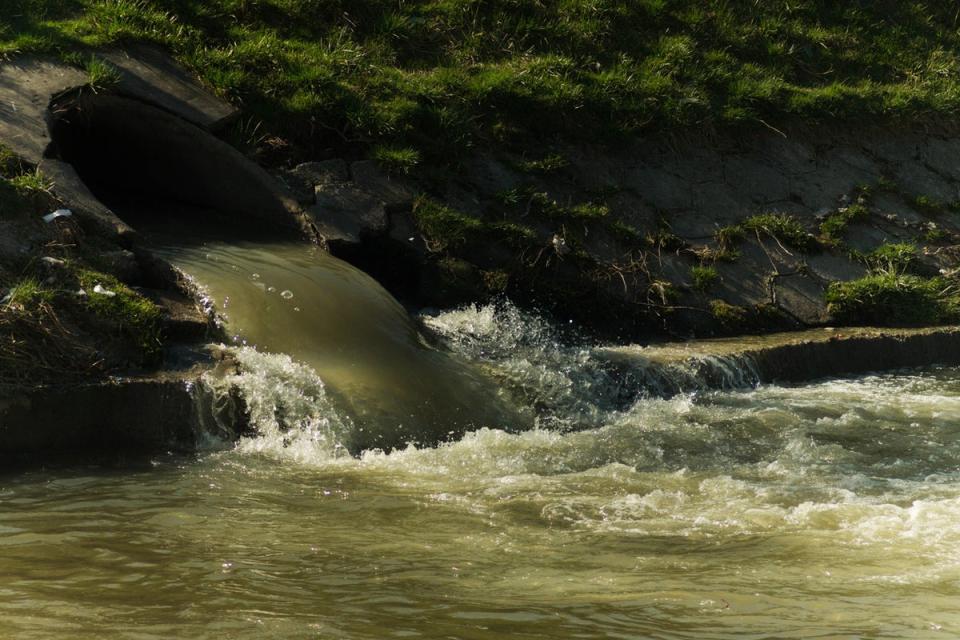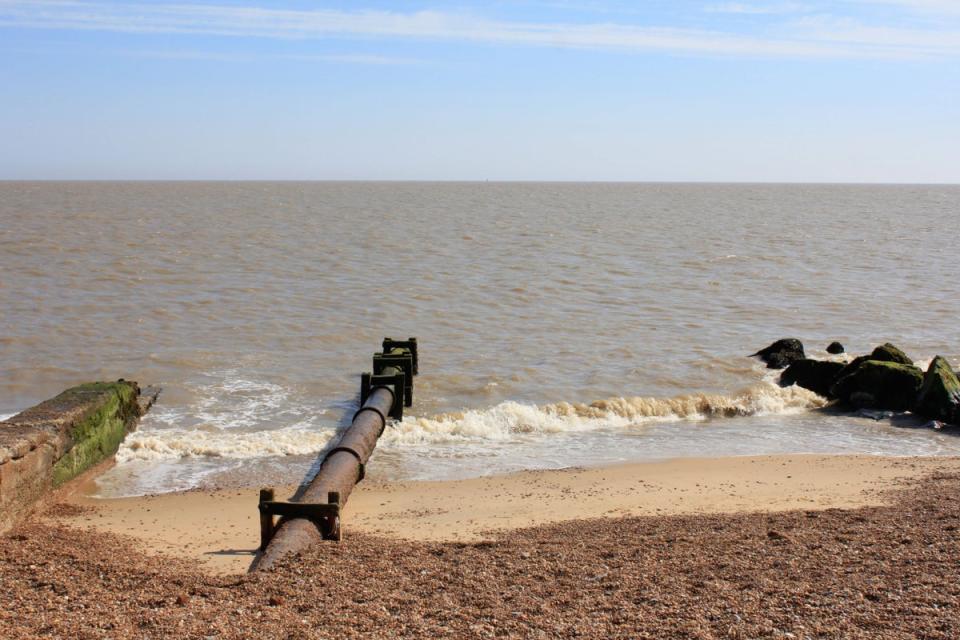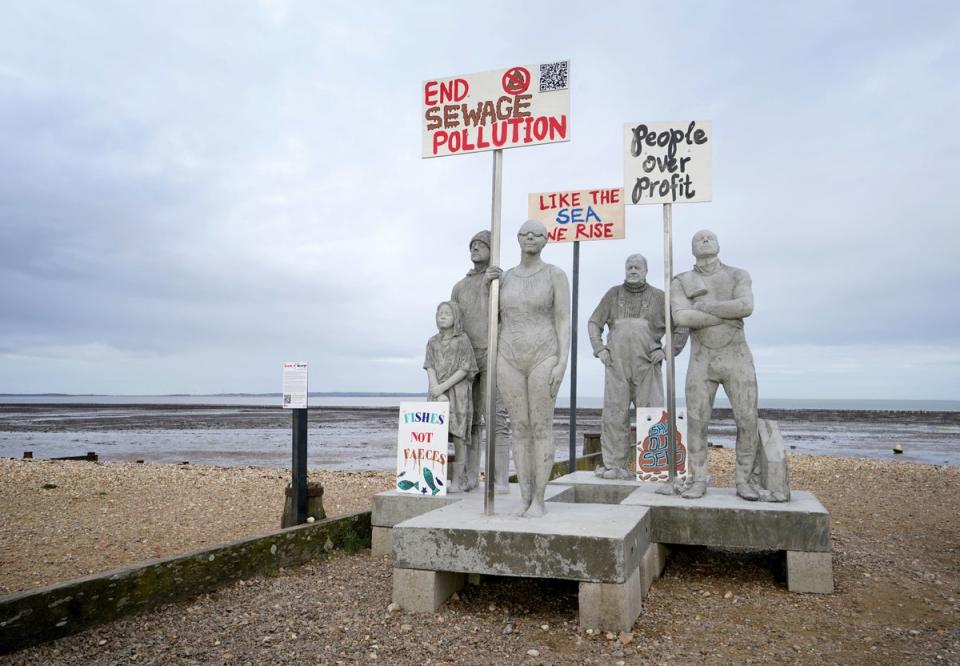Raw sewage spills into rivers and seas in England reached record high last year
Water companies are under pressure to ban bonuses for senior staff after raw sewage discharges into rivers and coastal waters doubled to record levels in England last year.
There were 3.6 million hours of spills in 2023, compared with 1.8 million in the previous 12 months, data published by the Environment Agency on Wednesday showed.
Water companies discharge waste into rivers and seas when sewers are overwhelmed by rainwater, with outlets known as storm overflows acting as relief valves when rain is particularly heavy.
They are supposed to be activated only during extreme weather but for years they have been used routinely, discharging sewage even on days when it has not rained.
The figures come as water companies face growing scrutiny over their practices, performance and profits, and as many of the country’s rivers and waterways suffer from pollution.
Labour called for an immediate ban on bonuses for bosses of polluting water companies.
Shadow environment secretary Steve Reed accused the Conservatives of being “too weak” to get tough with water company bosses, after the government launched a consultation on the issue.

Three companies – Thames Water, Wessex Water and Southern Water – were accused of breaking the law in July last year by discharging sewage water on days of no rainfall in the previous year.
A BBC investigation said the three water companies collectively released sewage in dry spills for approximately 3,500 hours throughout 2022, in violation of their permits.
Dry spilling is banned because it can lead to higher concentrations of sewage in waterways, posing environmental and health risks.
Without rainwater, the sewage remains undiluted, leading to issues such as the growth of algae, which can produce toxins “that can be fatal to pets and pose a health risk to swimmers”, said Dr Linda May, a water ecologist at the UK Centre for Ecology and Hydrology.
The three firms said that dry spills were a complex issue, there were a number of methodologies for how they were defined and calculated, and that they were working with the EA.
Meanwhile, the average household water and sewerage bill in England and Wales will rise by 6 per cent, or about £27, to £473 a year, from 1 April.
Wessex Water and Anglian Water are at the top end of the scale, with average bills set to increase to £548 and £529 respectively, while Northumbrian customers will see the lowest average bills of £422.

Water UK said firms would invest a record £14.4bn in return for customers’ money, to ensure supply security and “significantly reduce” the amount of sewage in rivers and seas.
The rise comes amid ongoing regulatory concern over dividends paid out by water firms to shareholders amid the cost of living crisis and public fury about sewage overflows into waters.
Wednesday’s figures showed United Utilities had the highest average number of sewage spills per storm overflow of any water company in England last year, at 45.4, followed by South West Water (43.4) and Yorkshire Water (35.9).
Anglian Water had the lowest average, at 22.2 spills per overflow.
United Utilities recorded the highest number of sewage spills from monitored storm overflows, 97,537, followed by Yorkshire Water (77,761) and Severn Trent Water (60,253), while Welsh Water had the lowest, at 4,204 (for its overflows in England).

A total of 656,014 hours of monitored sewage spills took place at United Utilities storm overflows, the largest number for any water company in England, with South West Water in second place on 530,737 hours and Yorkshire Water third on 516,386 hours.
Welsh Water had the lowest, with 23,354 hours (again, for its overflows in England).
Surfers Against Sewage, the campaign group, described Wednesday’s figures as “genuinely shocking”.
Helen Wakeham, Environment Agency director of water, said that the increase in sewage discharges by companies was “disappointing” but “sadly not surprising”.
“We are pleased to see record investment from the water sector, but we know it will take time for this to be reflected in spill data – it is a complex issue that won’t be solved overnight,” she added.
“No other country has the level of monitoring we do, with 100 per cent of storm overflows in England now fitted with a monitor.

“We are better placed than ever before to hold water companies accountable – thanks to intelligence from our new whistleblower portal, our plans to expand our specialised workforce, new enforcement powers, increased water company inspections and new tools to inform our enforcement work.”
Sir Ed Davey, the Liberal Democrat leader, urged the government to declare a national environmental emergency after the data was published, saying: “Our precious countryside is being destroyed and swimmers are falling sick.”
Mr Reed meanwhile accused the government of letting a “torrent of raw sewage pour into our rivers and seas”.
The Department for Environment, Food and Rural Affairs has been contacted for comment.

